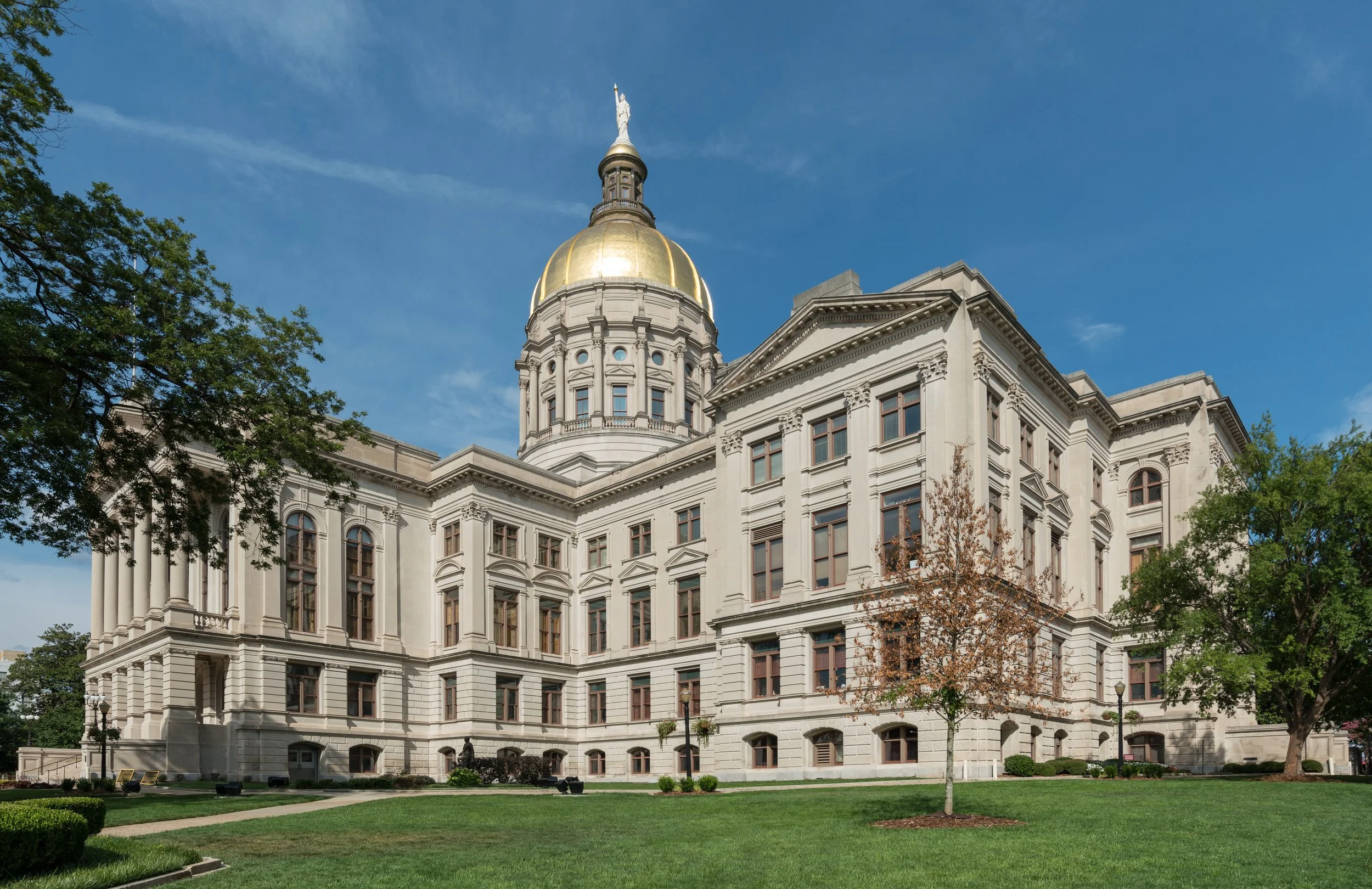
Resources
Resources
Neighborhood Planning Units
The City of Atlanta is divided into twenty-five Neighborhood Planning Units or NPUs, which are citizen advisory councils that make recommendations to the Mayor and City Council on zoning, land use, and other planning issues. The NPU system was established in 1974 to provide an opportunity for citizens to participate actively in the Comprehensive Development Plan, which is the city’s vision for the next five, ten, and fifteen years. It is also used as a way for citizens to receive information concerning all functions of city government. The system enables citizens to express ideas and comment on city plans and proposals while assisting the city in developing plans that best meet the needs of their communities.
Capitol View is a part of Neighborhood Planning Unit X (NPU-X). All residents can join the meetings via Zoom on the second Monday of every month starting at 7pm.
Join the Zoom Meeting: https://us06web.zoom.us/j/94060179815 Meeting ID: 940 6017 9815
Find Help
Find free or reduced-cost resources like food, housing, financial assistance, healthcare, and more. Enter your zip code > FindHelp.org
Food Pantries
Atlanta Community Food Bank Food Pantry Finder - enter 30310 in the finder to receive details on each organization before you head there and find other food distribution services in the surrounding neighborhoods.
West End SDA - WE-Serve Community Outreach, 1191 Donnelly Ave SW, Atlanta, 30310
2nd & 4th Tuesday of the month: 8:30am - 12 noon / Wed: 12-2pm / 4th Sat of the month 2-4pm
Power Atlanta - Thursdays 1- 7pm at 1024 Avon Ave SW, Atlanta, 30310
Community Church of God, Wednesdays 10am - 3pm at 850 Cascade Ave SW , Atlanta 30310
Salvation Army-Ray & Joan Kroc Corps Ctr at 967 Dewey St SW, Atlanta 30310
Mondays 11am - 12:30 pm / Thursdays 12:30 - 1:30 pm / Fridays 12:30 - 1:30 pm
Operation D.E.F.R.O.S.T., Saturdays 11am - 4pm at 1136 Metropolitan Pkwy SW, Atlanta, GA 30310
Pittsburgh Kingdom Doors Baptist Church, Mondays 9am - 6pm and Thursdays 12 - 4pm at 884 Coleman St SW, Atlanta, GA 30310
The Beloved Community Development Corporation, Thursdays 11am - 1pm and Sundays 12 - 2pm at 1117 Smith St SW, Atlanta, 30310
Saint Peter Ministries, Inc. - Feed the Community, Mondays 10am - 1:30pm and Thursdays 10am - 1:30pm at 1558 Venetian Dr SW, Atlanta, 30311
M. Agnes Jones Elementary School, 3rd Wed of the month 2:45 - 4:45 pm at 1040 Fair St SW, Atlanta, GA 30314
Lakewood Grocery Giveaway - Tuesdays 5 - 7pm at South Bend Commons, 1799 Lakewood Terrace SE Atlanta, GA 30315
South Atlanta Grocery Giveaway and Potluck - Wednesdays 4 - 6pm at Gresham Park Rec Center, 3113 Gresham Rd SE, Atlanta, 30316
The above two programs are run by Food4Life. Get more details: Atlanta Survival Program
For people who can't come to the grocery giveaways, deliveries of pre-made grocery boxes are available. Sign up to receive deliveries.
Vicars Community Center, Wednesday 10am - 1pm at 838 Cascade Avenue SW, Atlanta, 30311
Another Chance of Atlanta, Fridays 11am - 4pm at 3700 Wendell Drive SW, Suite 4, Atlanta 30336
Atlanta Police, Zone 3
Major William Ricker, Zone Commander
2353 Metropolitan Pkwy, 404-624-0674
Investigations Unit, 404-230-6104
http://smart911.com – sign up to keep your emergency contact info updated
Atlanta City Council
The Atlanta City Council Mission
The City Council is the chief policy making body for the City of Atlanta. The Council’s mission is to ensure that Atlanta is led by a groundbreaking, strong, and capable group of leaders that work for the good of all citizens across the city. As a legislative body, the council’s main role is to make laws. In addition, the Council has oversight of multiple agencies, boards, and commissions. The Atlanta City Council is comprised of 15 members and is led by Council President Doug Shipman. Each member of the Atlanta City Council tirelessly works to improve the lives of Atlanta’s citizens. Together, they work to ensure safer and cleaner streets, bolster Atlanta’s economy, and institute many community-based programs. Working hand in hand with Atlanta’s mayor and the members of the executive branch, the Council plays a key part in the budget process and financial well being of Atlanta.
Making Laws for the City of Atlanta/ How City Council Works
As the legislative branch, the Council is responsible for the creation of laws enacted to run the city government. Legislation can be introduced in two ways. The first way is that it be introduced on the floor of Council by a Councilmember. This is known as a personal paper. The other way is that the legislation can come through a committee. Here in the City of Atlanta, legislation takes two forms — ordinances and resolutions. An ordinance establishes a permanent rule of government. Every official act of the Council, operating with force and effect of law, must be an ordinance. Ordinances must be read before full Council at two regular meetings. Resolutions express intent or support of various projects and enterprises or establish legislative policy of a general nature. Resolutions, unlike ordinances, need be read only once and can be introduced and adopted at the same meeting. In some cases, the Council is required by law to hold a public hearing and must notify the public about the hearing.
Government Oversight
In addition to legislation, the Atlanta City Council works hard to ensure that city government works for its citizens. Through the various Council Committees the council assesses various government programs and agencies. Each year, the Council is in charge of holding budget hearings in which the City’s budget, recommended by the Mayor, is strictly reviewed prior to being voted on by the Council.
Capitol View is located in district 12 and is represented by Councilmember Antonio Lewis.
